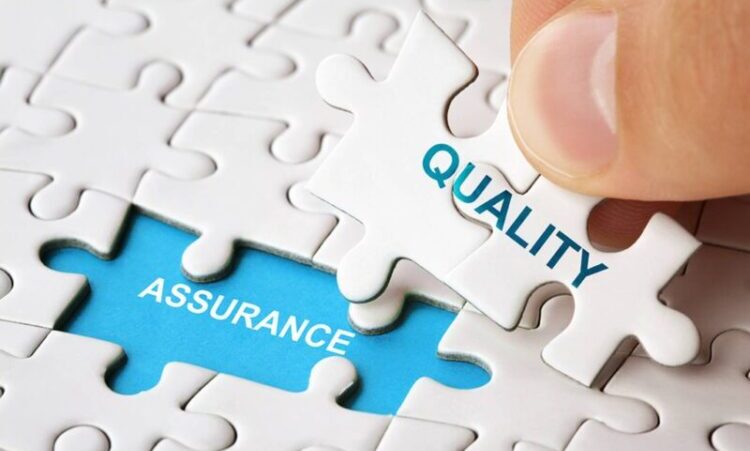In today’s globalised world, many businesses harness the power of overseas developer teams to fuel their projects and initiatives. The appeal is clear: access to a vast talent pool, cost-efficiency, and the potential for round-the-clock work. However, successfully managing an overseas developer team requires a well-thought-out approach. It’s not just about hiring the right people; it’s about creating an environment where they can thrive and contribute to your project’s success.
In this blog, we’ll look at how to get the most from your team of developers abroad. We’ll go through essential steps, like finding the right team and forming strong, lasting connections.
Page Contents
Hiring The Right Team
Understanding Your Needs
When you hire overseas developers, start by fully understanding your project needs. It means going into the details of your project, like the technology you need, the project size, and what you want to achieve. Finding a team with the right skills and experience will be easier when you’re clear about your project’s requirements.
Selecting the Right Location
Picking the best place for your overseas developer team matters greatly for your project’s success. Different countries and regions have their pros and cons. Think about time zones, getting along with the culture, speaking the language, and having a good group of talented people when you choose where to put your remote team. Getting the location right makes working together easier and getting stuff done.
Effective Screening and Interviewing

You need a good hiring process to find the right people for your team. Start by writing a clear job description describing the required skills and qualifications. In interviews, ask tough questions to check if candidates have the skills and can solve problems. It will help you make sure your team can do the job well.
Onboarding and Integration
Comprehensive Onboarding
Onboarding isn’t just about filling out forms. It’s the time to help your international developer team get to know your company’s way of doing things, what’s important to you, and the bigger purpose of your project. When you tell them about your project’s aims, it ensures everyone knows what they’re working toward and how they fit in. This thorough onboarding gets everyone ready to work together effectively.
Communication Tools and Techniques

Maintaining a solid overseas developer team requires good communication. Use tools like Slack and Zoom to talk clearly and on time. Have regular meetings to stay connected even if you’re far away. It helps everyone understand each other and feel like a team.
Building Team Chemistry
Creating strong team bonds in remote work is as vital as in a traditional office setup. Encourage your team, no matter where they are, to collaborate closely. Organise virtual team-building activities and casual chats to build a sense of unity and teamwork. When your team members feel connected and appreciated, they’ll be motivated to do their best.
Managing Remote Developers
Setting Clear Expectations
To manage remote developers effectively, ensuring everyone knows their job, what they’re responsible for, and when you should achieve specific project goals is essential. Having a project schedule that everyone can see and follow helps keep things organised and everyone accountable. Being transparent and open in remote work is necessary.
Feedback and Performance Reviews

Giving regular feedback and conducting performance reviews is vital when managing remote developers. This feedback should highlight their achievements and offer guidance on how they can get even better. These reviews help remote developers identify what they excel at and where they need to improve, enabling them to become more valuable contributors to your project.
Time Management and Accountability
Managing your time and staying accountable are essential in a remote work setup. Use time-tracking tools and productivity systems to ensure your work goes as intended. Meeting deadlines is crucial, and keeping the team accountable will help your project stay on track.
Tools and Technology
Collaboration Platforms
To improve teamwork with your international developer group, consider using collaboration tools like Trello, Asana, or Jira. These tools help manage projects, assign tasks, and track progress. Also, using version control systems like Git ensures the code stays reliable and allows for collaborative coding.
Cybersecurity and Data Protection
In today’s digital world, keeping your sensitive data safe is essential. Make sure you have strong cybersecurity in place for your project. It means storing data securely, controlling who can access it, and training employees in good cybersecurity practices.
Continuous Learning and Skill Development

Supporting ongoing learning and skill growth is crucial to keep your overseas developer team ahead in the tech game. Provide educational chances, courses, and certifications, so your team can stay current with industry trends and best practices.
Cultural Sensitivity and Inclusivity
Respecting Cultural Differences
In a team spread across the world, it’s essential to know and respect the cultural differences of your international developers. Every culture has its customs and rules; acknowledging and honouring these differences can prevent confusion and create a friendly work atmosphere. Encouraging cultural awareness in your company can make a diverse and welcoming workplace.
Language and Communication
International teams often face the hurdle of language differences. Even if English is the primary language, speaking clearly and patiently ensures everyone understands. If language troubles persist, think about providing language training to enhance communication.
Quality Assurance and Testing

Implementing Rigorous Testing Procedures
Testing is super crucial for good software. Create detailed testing plans that check all parts of your project. Do tests like functional, regression, security, and performance to ensure your project is top-notch.
Collaborative Bug Tracking
Tracking and managing bugs effectively is essential to keep your software in good shape. Use tools like Jira or Bugzilla to write down, follow, and decide which issues are most important in your project. Talking openly about these issues is vital to staying transparent and fixing problems quickly.
Conclusion
To maximise the value of your overseas developer team, you need to consider each aspect of your collaboration carefully. You can create a robust and long-lasting partnership by hiring the right people, fostering effective communication, providing the necessary tools, and showing respect and appreciation.
Remember, success in managing an overseas developer team doesn’t happen overnight, but your team can become a valuable asset to your organisation with patience and dedication.






